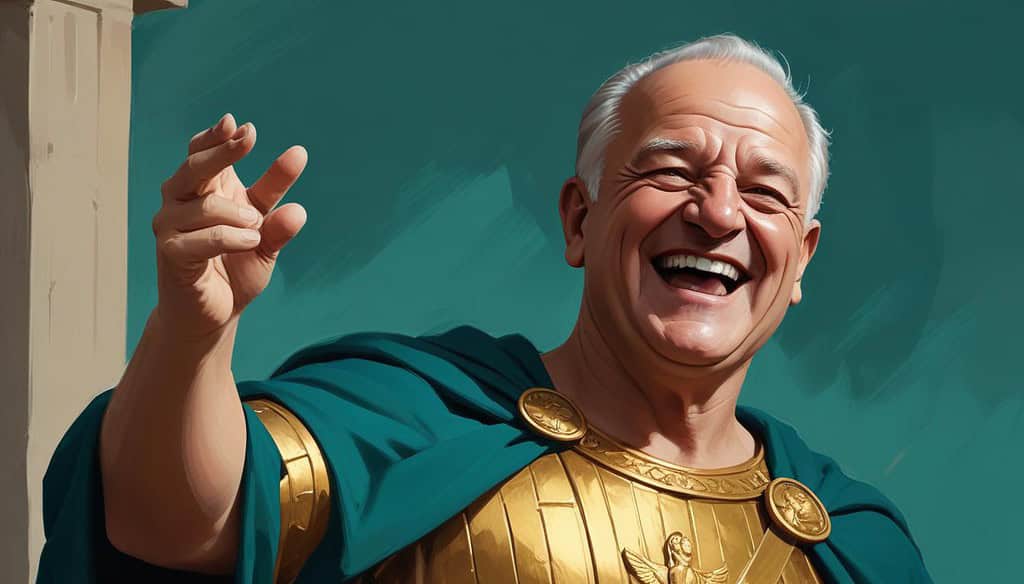Have you ever wondered what life was like for a Roman emperor? This listicle will explore 10 surprising facts about one of Rome’s most notable leaders, Emperor Vespasian. Vespasian’s story is filled with intrigue and accomplishment, from his rise to power to his lasting legacy.
As the ninth emperor of Rome, Vespasian played a crucial role in stabilizing the Roman Empire after a period of civil unrest. Despite his humble beginnings, Vespasian rose to prominence through his military prowess and political savvy. His reign marked a turning point in Roman history, as he implemented reforms that helped restore order and prosperity to the empire.
Vespasian’s legacy fascinates historians and archaeologists alike, from his construction of the iconic Colosseum to his controversial tax policies. Join us as we uncover ten surprising facts about this remarkable leader and gain a deeper understanding of the man behind the imperial title.
1. Humble Beginnings
Vespasian was born in 9 AD in a small village in Italy. His family was not part of the Roman elite, but he rose through the ranks of the military to become emperor, the first emperor from a non-patrician family.
2. Military Success
Vespasian was a skilled military commander and led successful campaigns in Britain and Judea. He was known for his strategic thinking and leadership on the battlefield. His military victories helped solidify his reputation as a strong leader.
3. Building Projects
As emperor, Vespasian focused on rebuilding and improving the infrastructure of Rome. He constructed the Colosseum, one of the most iconic landmarks in Rome, and the Temple of Vespasian and Titus. These building projects helped to showcase his power and wealth.
4. Financial Reforms
Vespasian implemented several financial reforms during his reign. He introduced a tax on public urinals, which became known as the “urine tax.” This tax helped to generate revenue for the empire and was a unique way to raise funds.
5. Sense of Humor
Vespasian was known for his sense of humor and practical jokes. He often made witty remarks and enjoyed playing pranks on his advisors and courtiers. Despite his position of power, he maintained a lighthearted attitude.
6. Public Works
In addition to his building projects, Vespasian also focused on public works projects. He improved the Roman road system, built aqueducts to bring water to cities, and constructed public baths. These projects helped to improve the quality of life for Roman citizens.
7. Family Legacy
Vespasian had two sons, Titus and Domitian, who both became emperors after him. Titus succeeded Vespasian as emperor, while Domitian ruled after Titus’ death. This established a family dynasty that would continue to influence Roman politics for years to come.
8. Military Campaigns
Vespasian was involved in several military campaigns during his reign. He successfully put down a rebellion in Judea and reclaimed the province for the Roman Empire. His military victories helped secure the empire’s borders and maintain peace.
9. Cultural Patronage
Vespasian patronized the arts and supported many cultural projects during his reign. He sponsored the construction of theaters and promoted literature and poetry. His patronage helped to foster a thriving cultural scene in Rome.
10. Legacy
Vespasian is remembered as a strong and capable emperor who brought stability and prosperity to the Roman Empire. His military successes, financial reforms, and cultural patronage left a lasting impact on Roman society. His legacy as a skilled leader and builder continues to be celebrated today.
Roman Emperor Vespasian was a complex and intriguing figure in ancient history. His legacy lives on through the monuments he built and the policies he enacted during his rule. By learning more about Vespasian, we can better understand the political and social dynamics of the Roman Empire.



